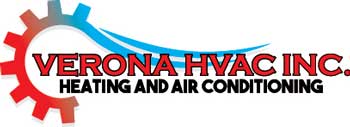Buying your first home is an exhilarating experience. You’re probably juggling a dozen things or more about making the right choice. We believe that gaining insight into your potential new HVAC system is crucial. The property’s HVAC system represents a significant investment and source of potential long-term costs, illustrating why a detailed inspection is important for first-time homebuyers.
In this guide, we’ll outline seven tips for learning everything you can about a home’s heating and cooling setup. And if you want a deeper opinion from the pros, don’t hesitate to contact Verona HVAC. Our experienced team can weigh in on your options with industry insights you won’t find elsewhere.
1. Which Kind of HVAC System Does the Home Use?
Start by identifying what kind of HVAC system the home has. Furnaces tend to last longer compared to air conditioners, and relatively new types of HVAC products like heat pumps boast average life spans that are impressively long. Getting the details on the make and specific model provides a much better sense of how much maintenance it will require.
2. How Long Ago Was the System Installed?
It’s just as smart to learn how old the HVAC system is when you’re looking at a new home. For the most part, HVAC systems tend to run for about 10-12 years. Having the knowledge of when it was installed helps you plan for possible repair needs or when it might break down. Older systems are more prone to problems, so budgeting for a replacement unit could be necessary sooner than you thought.
3. What Does the Warranty Cover?
Don’t forget to look into whether the HVAC system is still under warranty. If it is, that’s great news because it can assist with maintenance costs. HVAC warranties should take care of parts and labor, but the details in each policy will vary. Make sure you go over any terms that aren’t familiar to ensure you understand your coverage and potential out-of-pocket costs.
4. Does the System Have a Documented Maintenance History?
Take a close look at the maintenance history of the HVAC system, if the records are available. This service history can reveal if the repair needs are high or how much upkeep was provided. Ask about records for key tasks like filter changes, which can indicate it received regularly scheduled tune-ups.
5. Are You Aware of the System’s Energy Efficiency Ratings?
Finding a home that features an HVAC system with great energy efficiency can lead to smaller utility bills and less of an impact on the environment. Check out the seasonal energy efficiency ratio (SEER) ratings for air conditioning along with the annual fuel utilization efficiency (AFUE) for furnaces. The higher the SEER rating, the more efficient the cooling over the whole season, while higher AFUE ratings illustrate that the fuel is efficiently converted into useable heat.
6. Have You Noticed Signs of Problems During Your Inspection?
Even without heating and cooling expertise, you can still take a moment to check out the HVAC system yourself. Look for signs of problems that weren’t mentioned by the seller or real estate agent. This includes strange noises, unequal airflow and attempts to cover up any serious damage.
7. Have You Asked Your Local HVAC Professional?
If you’re not quite sure about the current state of the HVAC system, it’s wise to get a professional opinion from certified HVAC technicians. They will be much more likely to catch things you may not know about, including leaks in the refrigerant, bad electrical connections or flawed ductwork.
A Chat with Verona HVAC Helps Take the Stress Out of Your Home-Buying Journey
Finding your first home is meant to be a joyful event, and Verona HVAC will do everything possible to ensure it stays that way. Connect with us at 818-306-3387. We can go over the details about how our HVAC services help make this process smoother, giving you what you need to make an offer with confidence.
